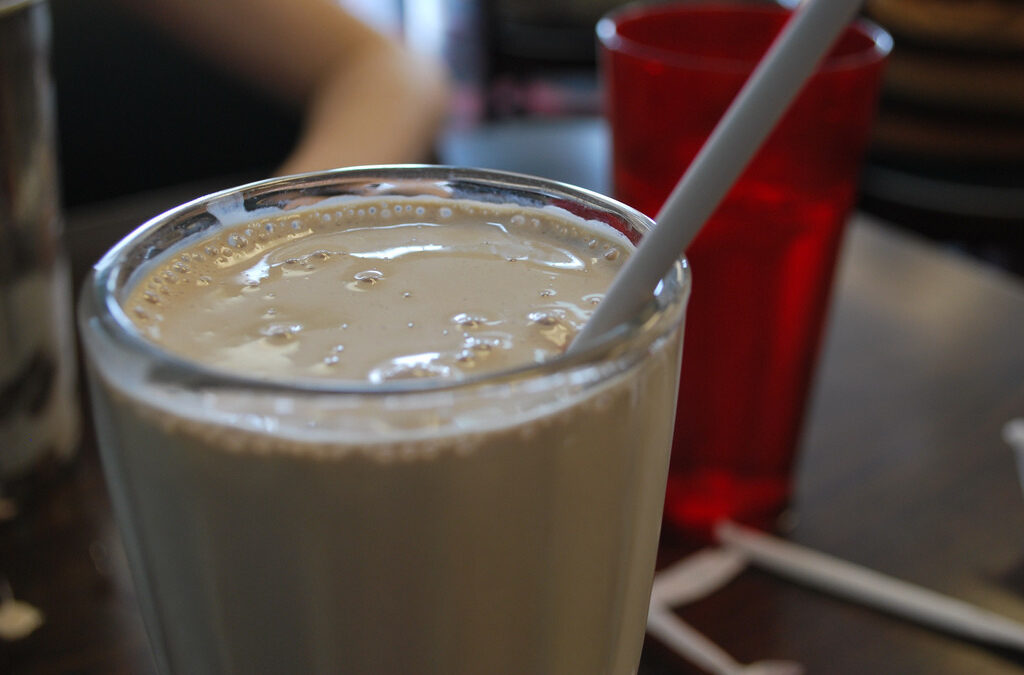Most fitness magazines you pick up these days have no end of appealing ads for protein supplements and the market place from supermarkets to specialty stores is saturated with a never ending range of protein powders, bars and balls.
So it is no wonder such a big percentage of gym goers are converts of the protein shake.
But here’s something worth considering; is protein powder really essential for recovery and building muscle for the average gym goer? It seems most people just take it for granted these days.
Then again, protein powder is pretty much a new kid on the block. It is only in the last fifteen years or so that whey protein in big tubs has become popular and a “go to” food source.
Prior to that people built great bodies and stayed perfectly healthy just by eating “real food”.
Let’s take a quick look and see just how important protein powders really are.
How Much Protein Does The Human Body Need?
In other words, how much protein is essential to keep the human body humming?
You will find the majority of mainstream bodybuilding magazines and fitness websites tend to suggest from 1.3 to 1.8 grams of protein per kilo of body mass.
But is this really the case?
There is no doubt this figure helps lots of sports supplement companies to sell copious tubs of protein powder, but we should know the facts, right?
Scientific studies show that protein intake and requirements come down to age, size, metabolism and activity levels but for general good health the Institute of Medicine’s protein RDAs are calculated using 0.8 grams of protein per kilogram of body weight.
This means approximately 80 grams of protein a day, which is incredibly easy to ingest via your standard meals, without any supplementation required whatsoever.
What’s more, even very high endurance athletes, such as triathletes only require a little more protein than the average person, despite the massive amount of stress they place on their bodies. Research suggests triathletes need less than 1.3 grams of protein per kilogram of bodyweight to recover and function at their best.
It is also worth noting Americans, as well as most Western people, eat a diet very high in protein; that is, dairy products and meat. This means a huge amount of protein is eaten on a daily basis as part of our standard diet (eggs, milk, cheese, chicken, beef, yoghurt).
Even those people who consume less dairy, still eat lots of beans and nuts, which provide a high degree of protein.
Science Driven Nutrition also provides us with these 3 Things You Need to Know about Protein.
Is Protein Powder Superior To ‘Good’ Food?
While the facts cannot be argued with, the average Australian consumes a lot of protein in their everyday diet. Many people claim our diet is very high in fat and other unwanted elements, which makes protein powder a better and more convenient choice.
Is this the case?
Well, protein powder is simply a processed powdered form of food (whey is a by-product of cheese making), which has been ground down and laced with all sorts of additives, to make it soluble with water or milk so it’s easy to drink in a shake. But yes, it is great for if you need a quick hit of protein and are short on time.
When looking at the comments and suggestions of dietitians and nutritionists, you will see they confirm there is nothing in a protein powder that makes it better than a real food source.
In fact, many say only the frail and elderly really need to have an additional protein shake to supplement their dietary intake.
With that said, let’s look at another claim.
You Need Lots of Protein Immediately After Working Out
This is a very popular claim and it has become almost gospel in many fitness circles (bodybuilding and CrossFit).
But again, looking at the studies and science in this area, we can see it is helpful to consume some protein within 30-60 minutes after a workout (as it promotes muscle growth and recovery), however the amount required is much lower than you might think. A recommendation from one leading nutritionist suggests 10 grams of protein and 20 grams of carbohydrates is more than enough (if you are a very large person, then 20 grams of protein would be the maximum amount needed).
This is because the body can’t absorb and use more than this amount at any one time. Interestingly, this amount of protein can be found in a small carton of chocolate milk (plain milk would also provide the same results).
Do You Even Need Protein after Working Out
Unless you are a high level athlete, you will see no major difference in your recovery time and muscular progression by waiting an hour or two to eat after a workout. There is clearly no evidence to suggest another answer. Simply eating a balanced diet of three meals a day and two light snacks – this is the best policy.
Conclusion – Muscles Don’t Care
There are a lot of claims around protein powders that don’t hold up to science and the available evidence certainly proves this. Another point, your muscles don’t care where protein comes from. They just respond based on the nutrients they are given. Muscles are not able to figure out if the protein came from an expensive protein supplement or a simple bottle of chocolate milk or even a hard-boiled egg.
So now you can be the judge when it comes to spending your hard earned dollars.
Flickr Creative Commons Image via Marc Majcher.

